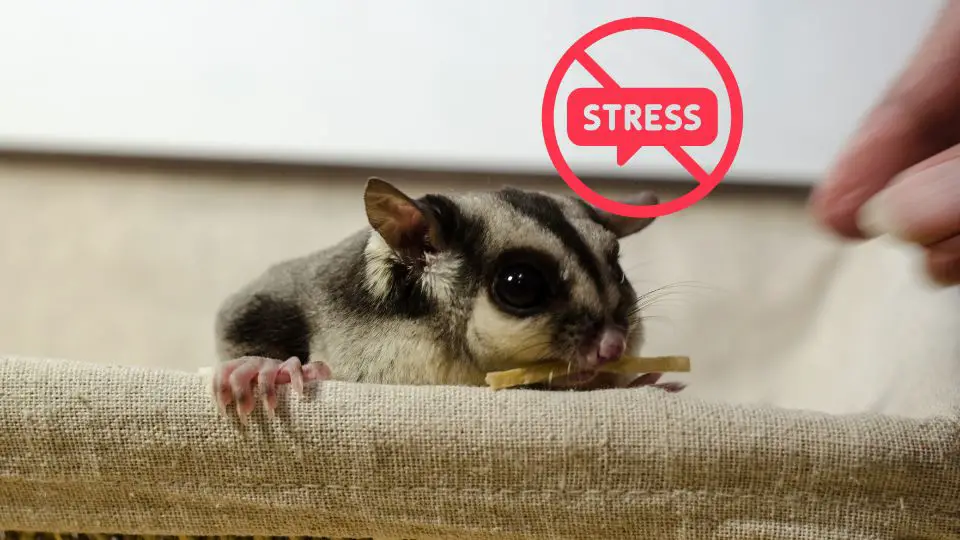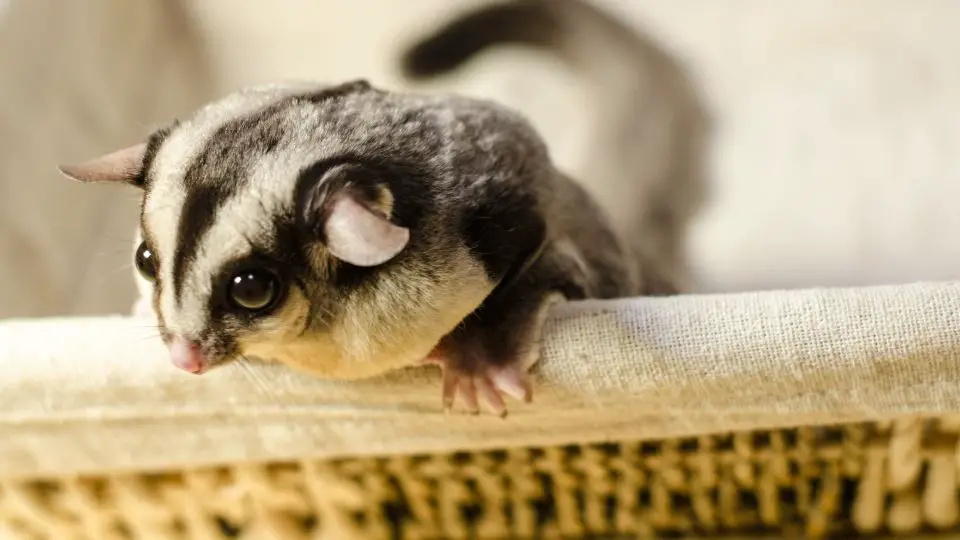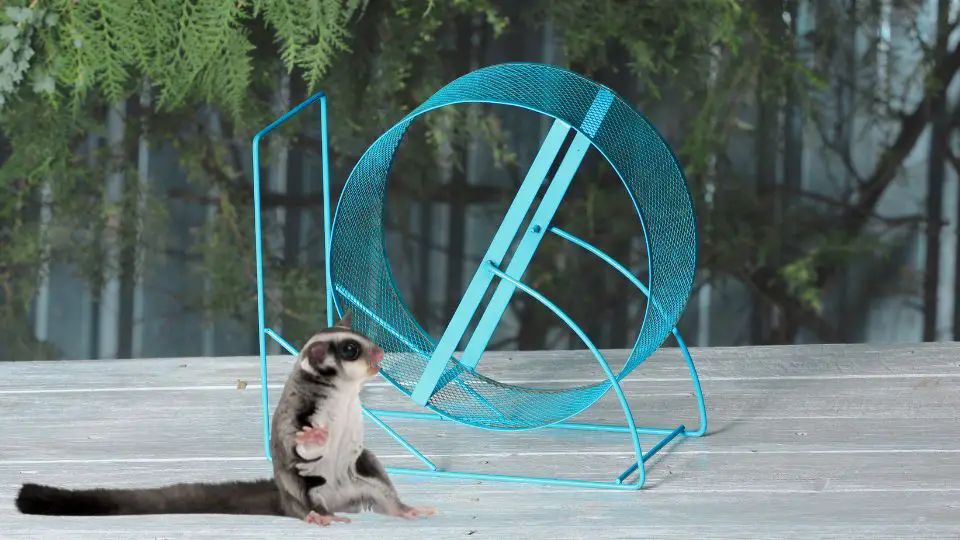Sugar gliders are prone to stress and anxiety. There are a few things you can do to help your sugar glider feel more relaxed and reduce their stress levels.
If your sugar glider is looking stressed, there are a few things you can do to help them feel more relaxed. Try offering them a soft, comfortable place to rest, like a hammock or blanket. You can also give them some extra attention and affection, or offering them a tasty treat. If your sugar glider is still feeling stressed, you may want to consult a veterinarian for further help.
In this article, we talk about how to calm a stressed sugar glider, what are the causes that a sugar glider may be stressed and what are the signs of stress.
How to calm a stressed sugar glider
Sugar gliders can get stressed by many things in their environment. As a result, they may become aggressive or withdrawn. To help your sugar glider relax and feel comfortable again, follow these steps:
Create a safe and comfortable environment
Your sugar glider’s cage should be in a quiet area away from loud noises and bright lights. The cage should also be large enough for your sugar glider to move around freely.
Handle your sugar glider
Get your sugar glider used to being handled by spending time every day gently petting and rubbing him. Talk gently to your sugar glider as you handle him, and offer him treats.
Offer a variety of foods
Sugar gliders are attracted to sweet foods, so offer your sugar glider a variety of fruits and vegetables as well as insects. This will provide him with the nutrients he needs and help keep him from getting bored.
Provide toys and playtime
Sugar gliders are active and playful creatures, so provide them with plenty of toys to keep them entertained. Spend time every day playing with your sugar glider to help relieve his stress.
Play at least 2 hours a day with your pet sugar glider. This will help him become used to being handled and also relieve boredom and stress. Try to handle your sugar glider every day, even if it’s just for a few minutes at a time.
Set up a glider room
These little creatures are very curious, so it’s important to create a safe space for them to explore. Staying in the same cage day after day can be boring for your sugar glider, so set up a room where he can explore and play. This will help keep him from getting stressed.
Be sure to glider proof the room by removing anything that could be harmful to your pet, in order to avoid any accidents.
Clean the cage
Sugar gliders are clean animals and they like their living space to be clean as well. Be sure to clean the cage regularly to avoid any health problems.
Cleaning the cage also helps to reduce stress levels, as your sugar glider will feel more comfortable in a clean environment.
Give your pet a friend
In general, when in captivity, sugar gliders are happier when they are in pairs or groups. This is because they are social animals by nature and enjoy the company of others. If you only have one sugar glider, consider getting him a friend to help reduce his stress levels.
Be sure to introduce the two animals slowly and carefully to avoid any fighting.
Take your sugar glider to the vet
If your sugar glider’s stress does not seem to be relieved by these measures, take him to the vet to rule out any medical problems.
Signs that your sugar glider is stressed
There are several signs that may indicate that your sugar glider is stressed. If you notice any of the following, it’s important to take action to help relieve your sugar glider’s stress:
Hiding
Sugar gliders will often hide when they are feeling stressed. If you notice your sugar glider spending more time hiding than usual, it’s a sign that he may be stressed.
Loss of appetite
When sugar gliders are stressed, they may lose their appetite and stop eating. This can bring on a number of health problems, so it’s important to take action if you notice your sugar glider is not eating.
Excessive grooming
Sugar gliders will often groom themselves excessively when they are feeling stressed. This can lead to bald spots and even open sores if not stopped.
Aggression
Stressed sugar gliders may start biting or clawing at you when you try to handle him. This is a defense mechanism and a way for them to tell you how they are feeling.
Shivering
Shivering is a sign that your pet glider is feeling cold or frightened, both of which can lead to stress.
What causes stress in a sugar glider
There are several things that can cause stress in a sugar glider. Some of the most common include:
Sugar gliders are social creatures and need to interact with others on a regular basis. If they are not properly socialized, they can become stressed.
Lack of exercise
Sugar gliders are active creatures and need to exercise daily. Without enough exercise, they can become bored and stressed.
Cold temperatures
Sugar gliders are tropical animals and prefer warm temperatures. If they get too cold, they can enter a state of torpor, in which they lower their body temperature to conserve energy. This can be stressful for your sugar glider, as they lose appetite and can even stop moving.
Dirty cage
Sugar gliders are clean animals and prefer a clean living environment. A dirty cage can cause stress and health problems.
Change in routine
Sugar gliders are creatures of habit and do not like changes in their routine. If there is a sudden change, such as a new pet in the house, it can cause stress.
Loud noises
Sugar gliders are sensitive to loud noises and can become stressed if they are exposed to them on a regular basis.
Wrong diet
Sugar gliders need a diet that is high in protein and low in sugar. If they are not getting the proper nutrition, it can cause stress.
Unfamiliar faces
Sugar gliders do not like unfamiliar faces and will often hide when someone new comes around. This can cause stress if there are frequent visitors to your home. But this is not limited to people only, as a sugar glider can get stressed by other animals too.
Conclusion
If you think your sugar glider is stressed, there are several things you can do to help. The most important thing is to provide lots of socialization and exercise. A clean cage and a healthy diet are also important. If you think your sugar glider’s stress is not being relieved by these measures, take him to the vet to rule out any medical problems.







